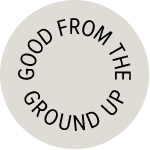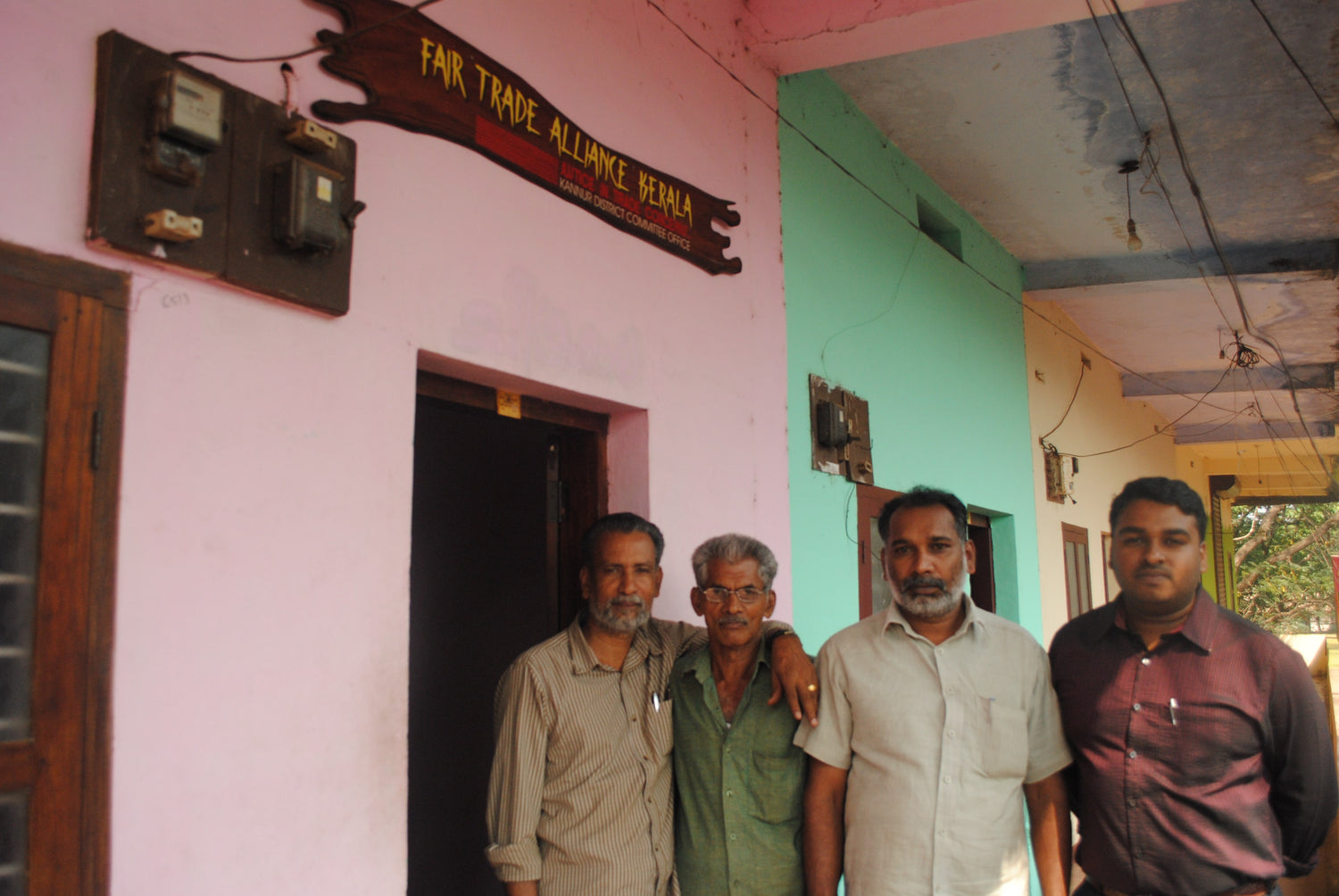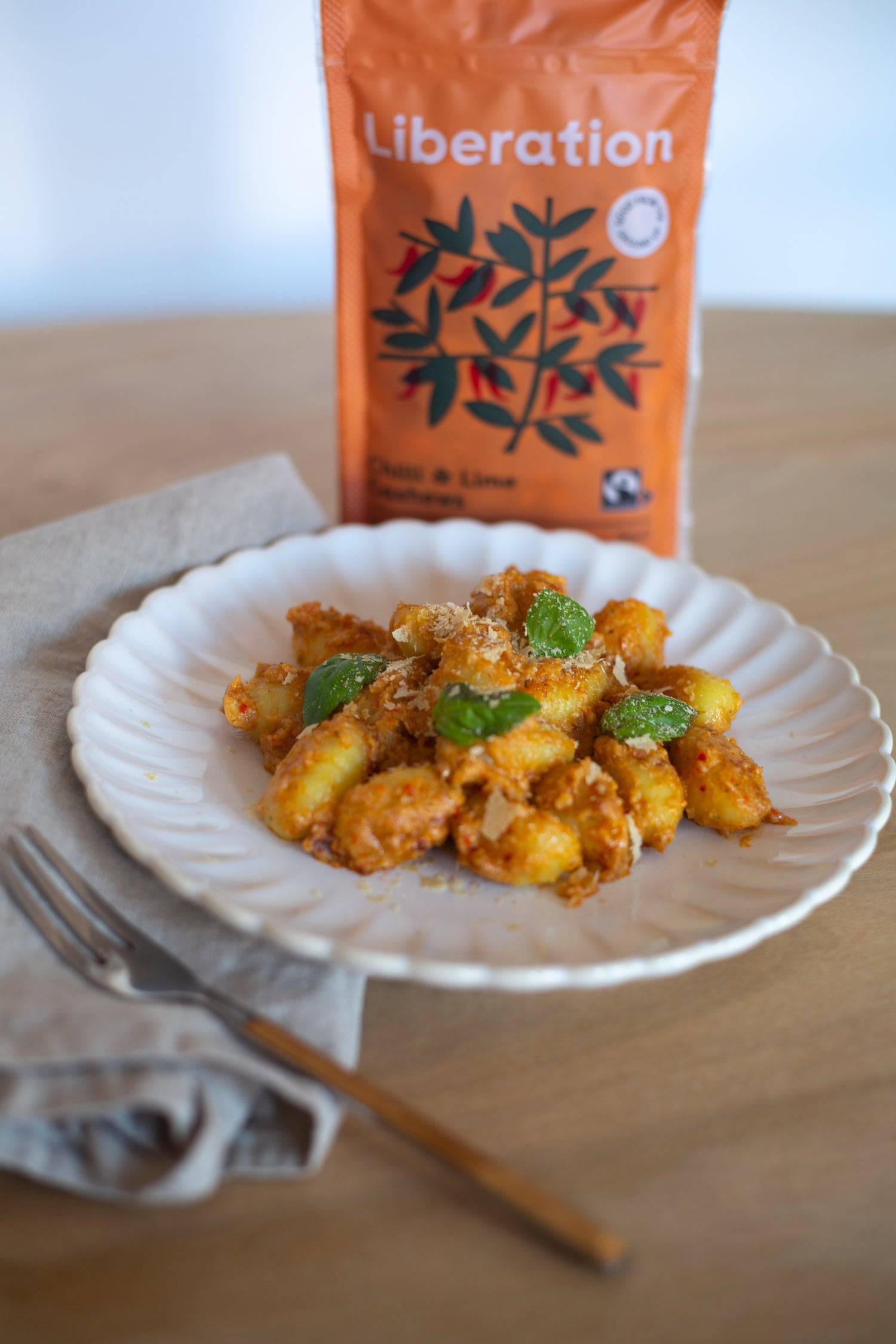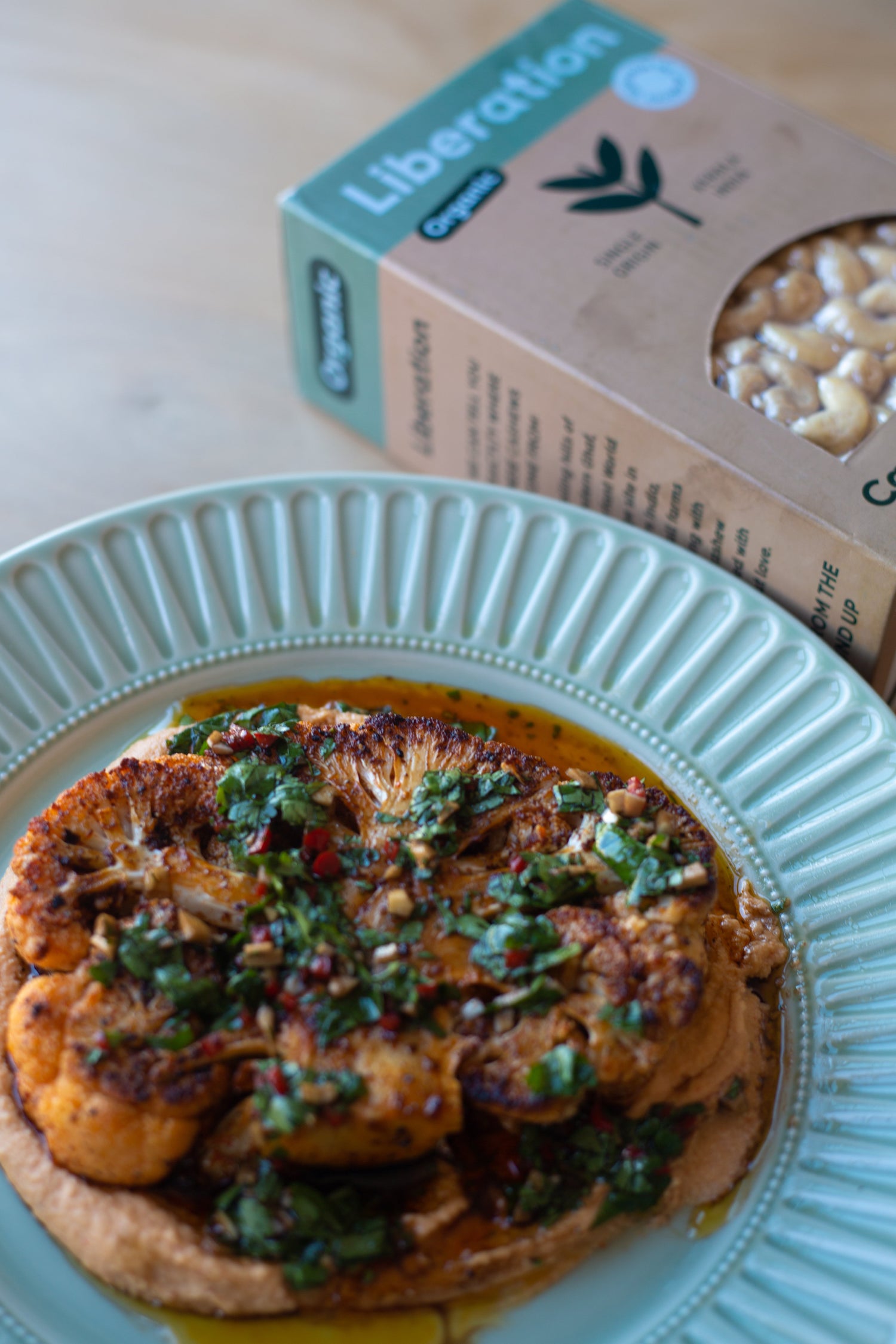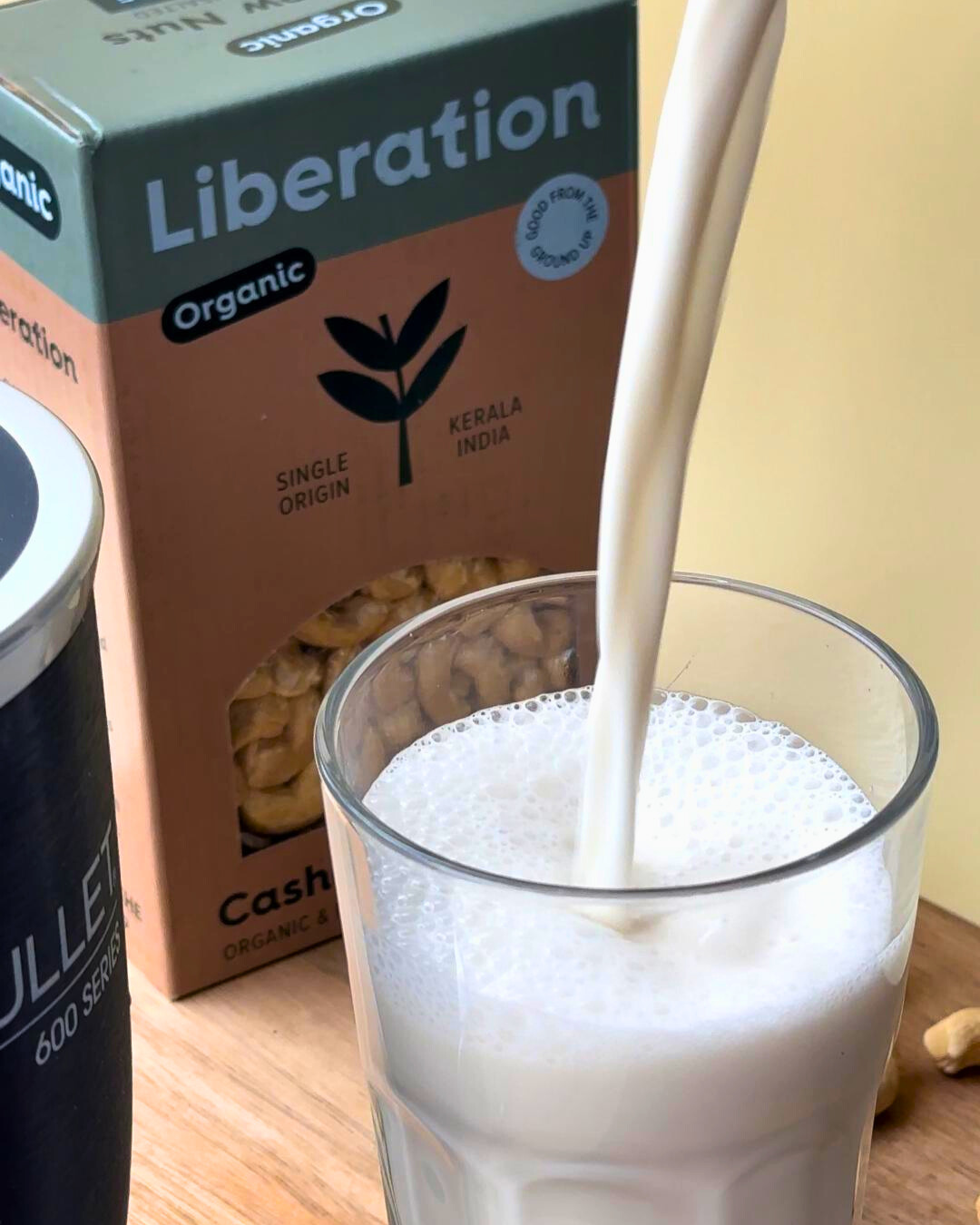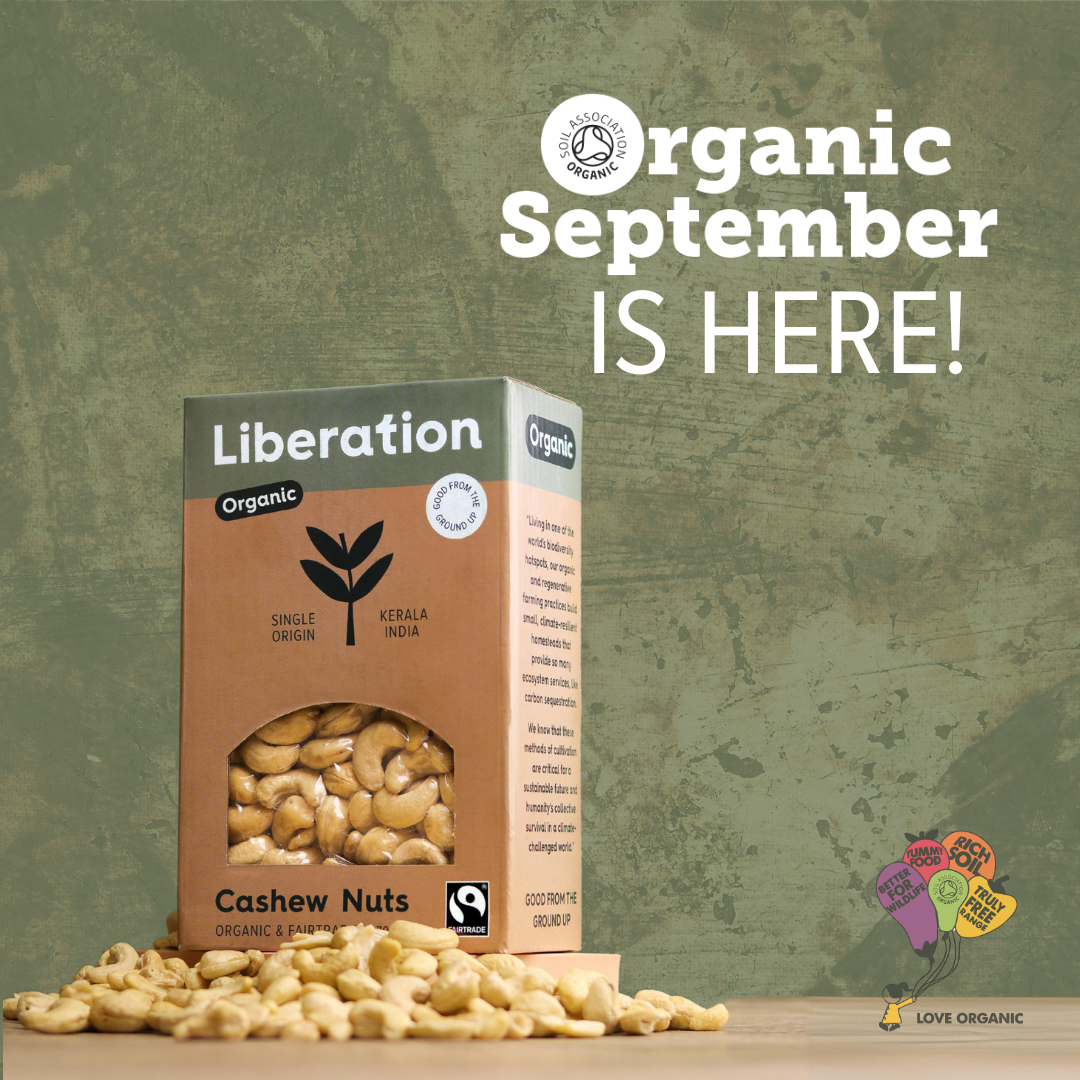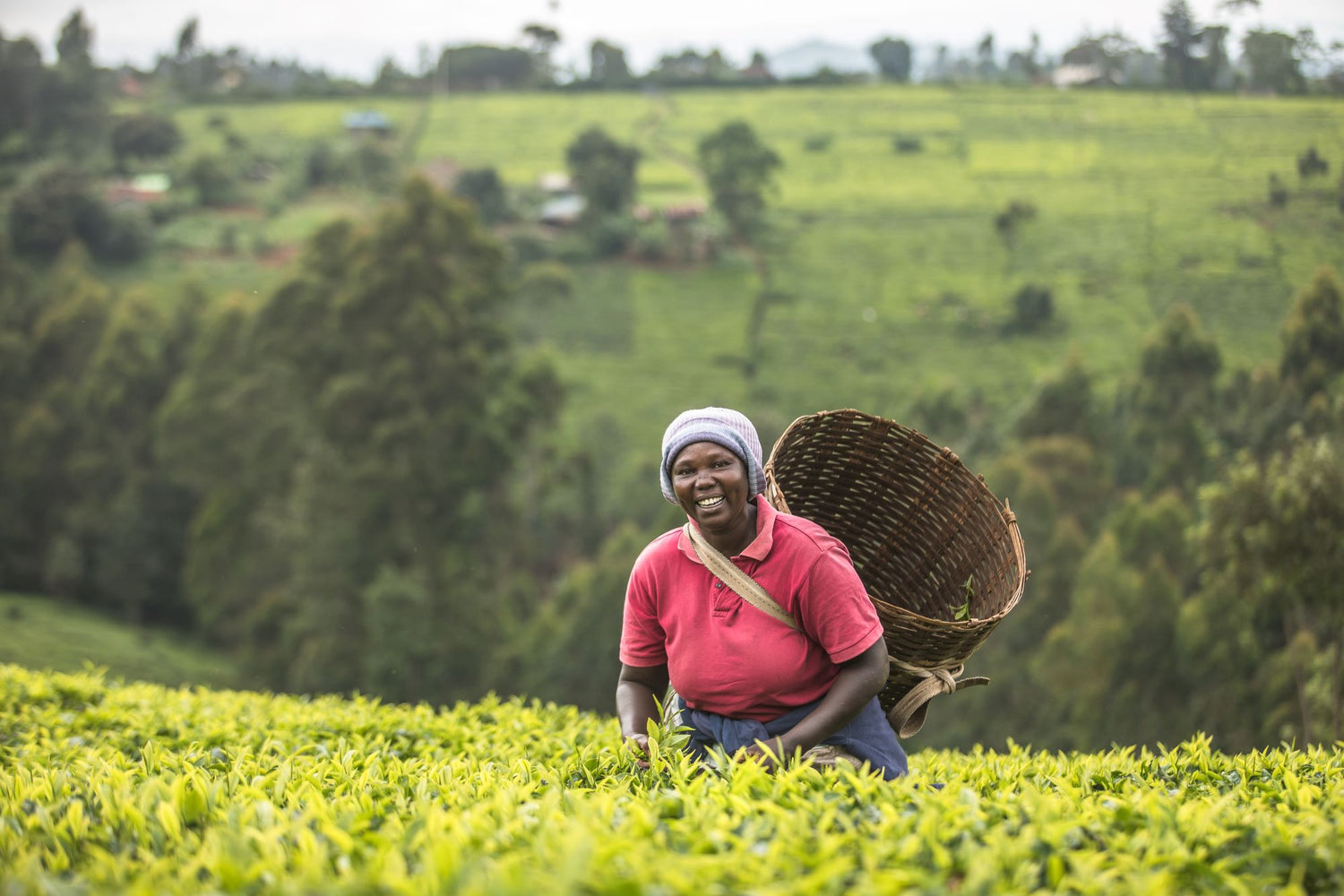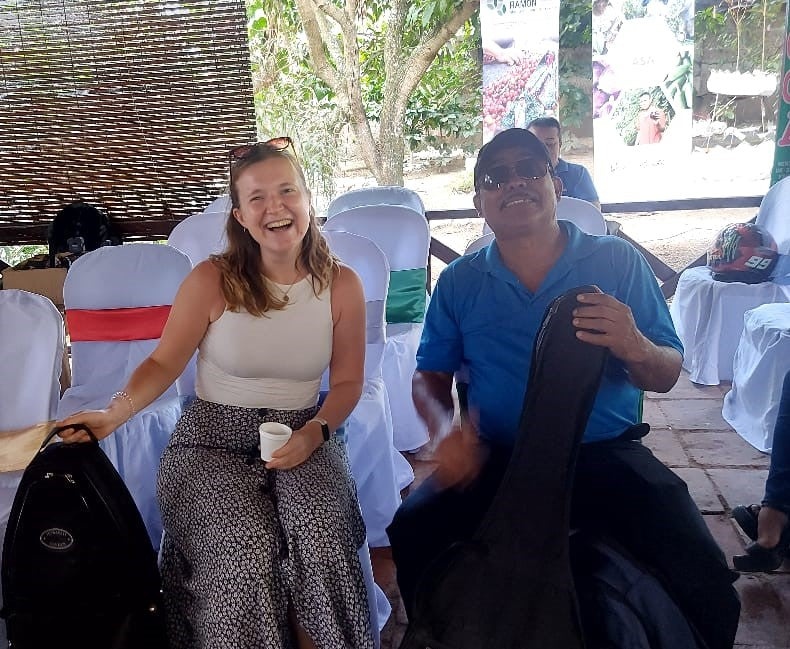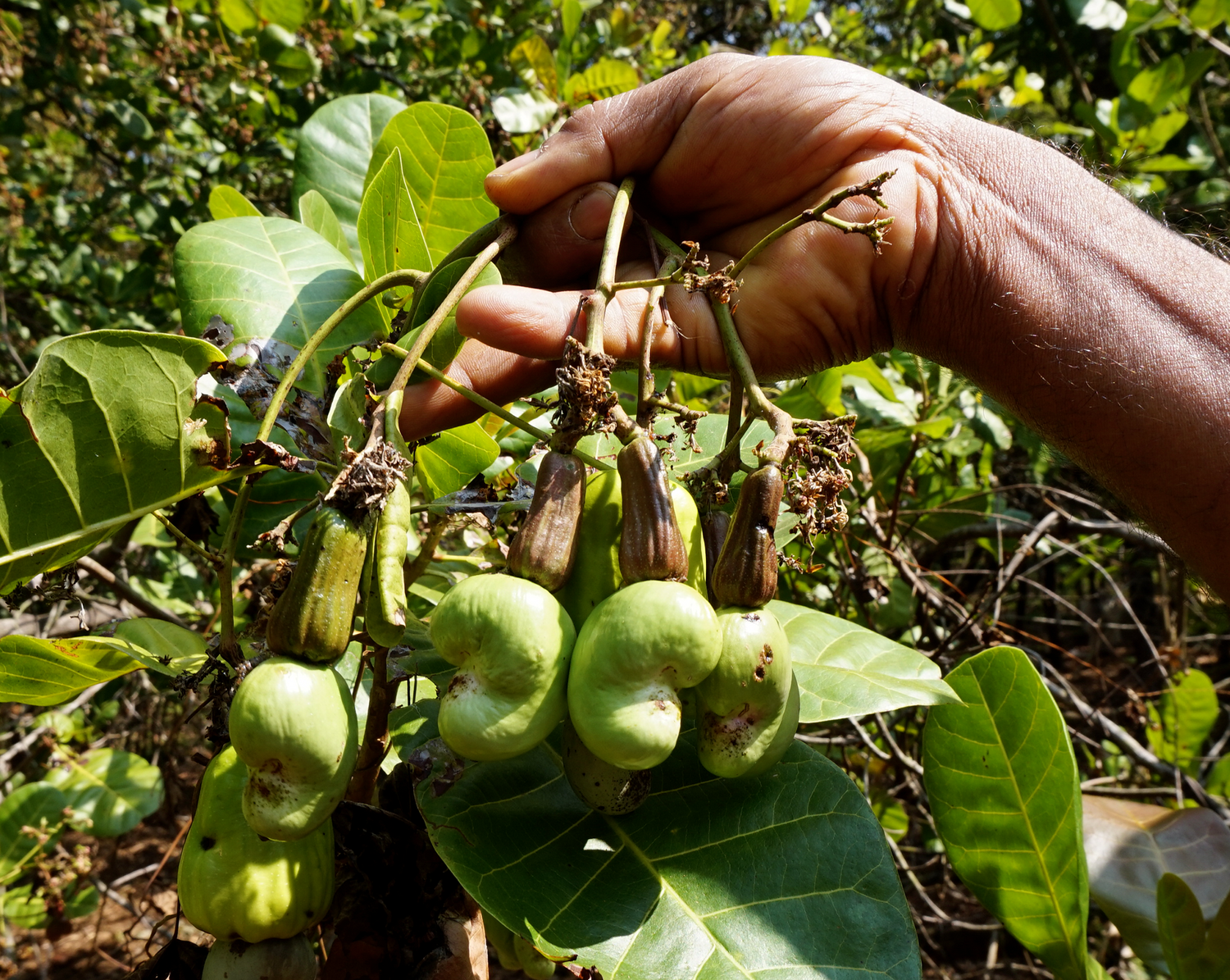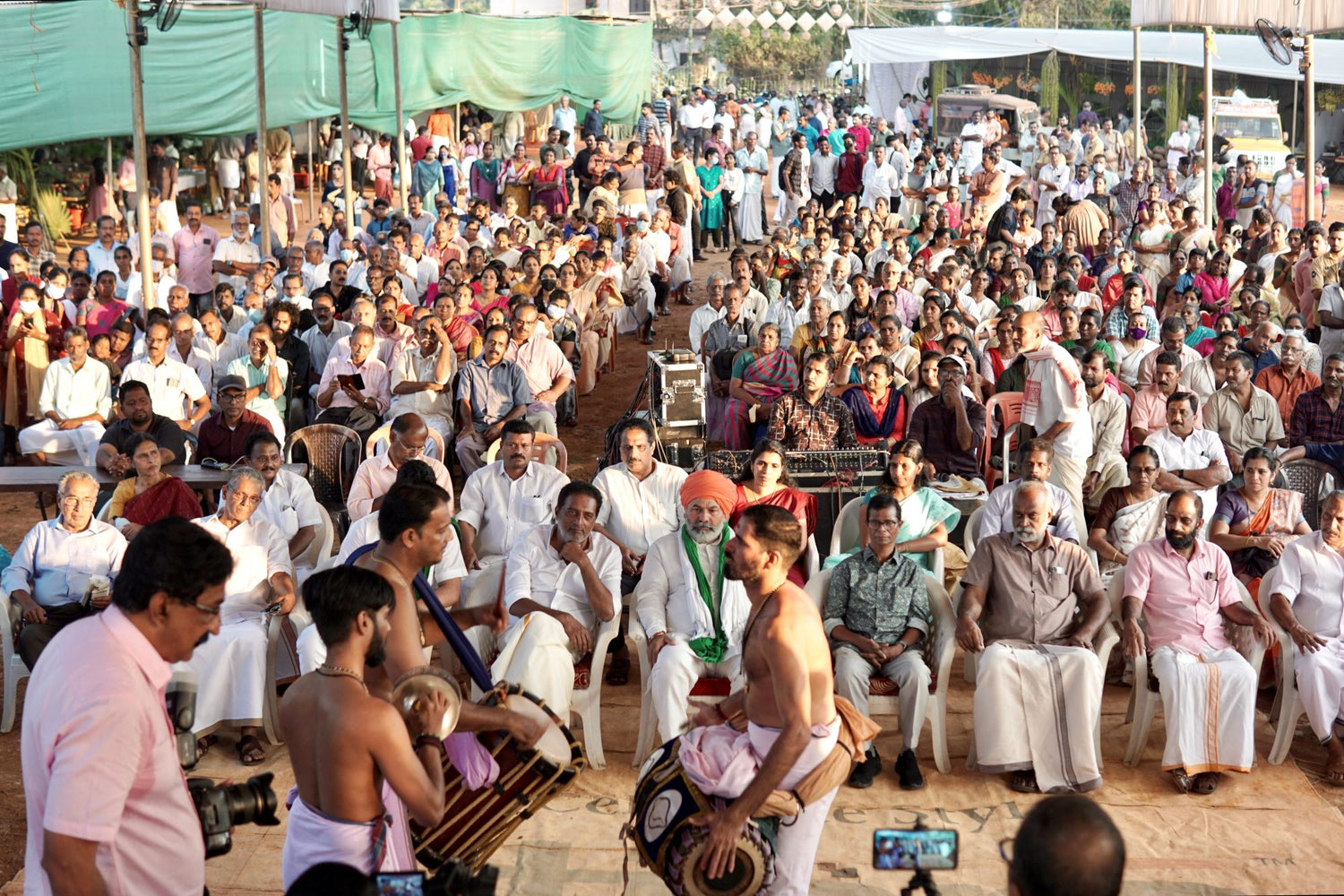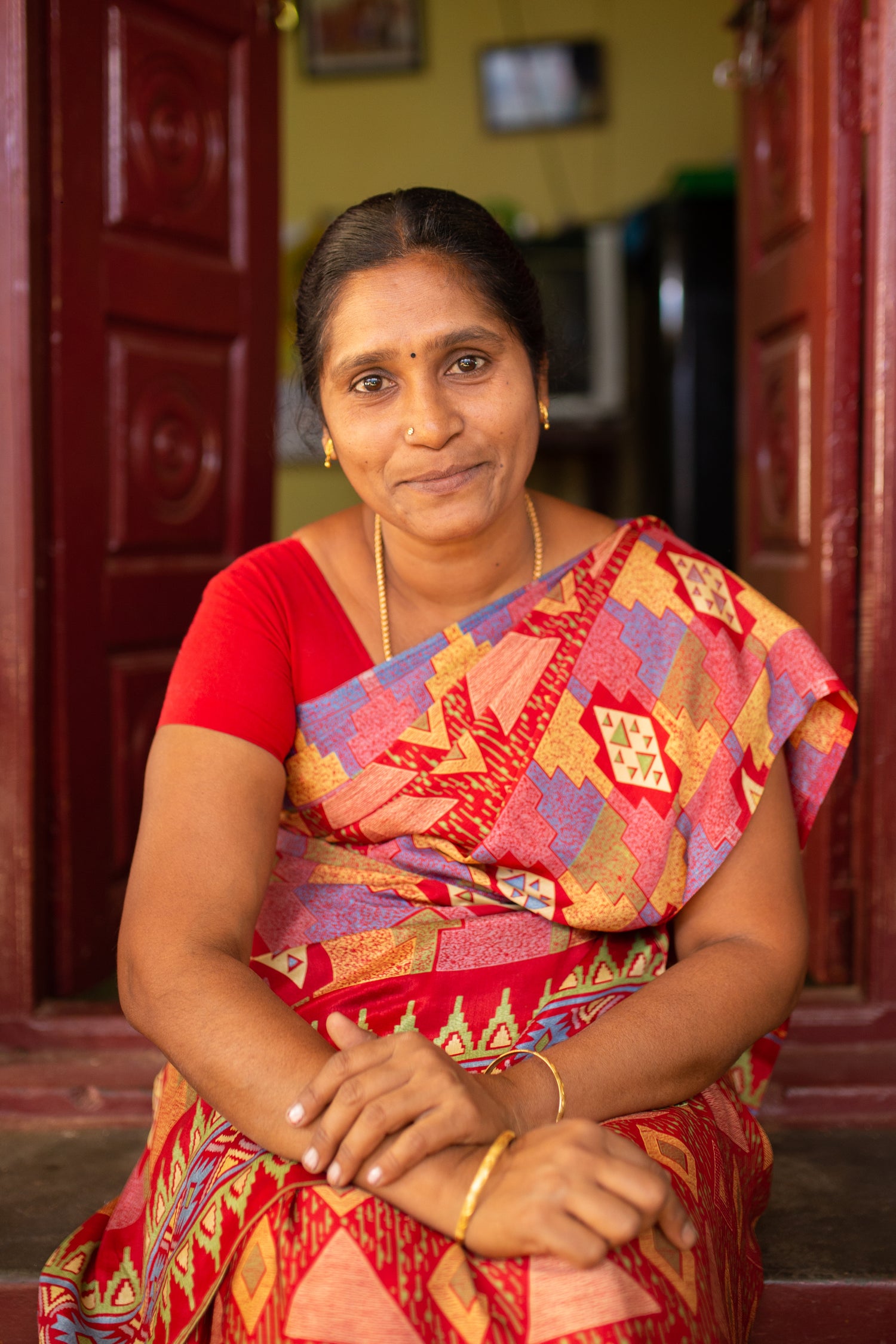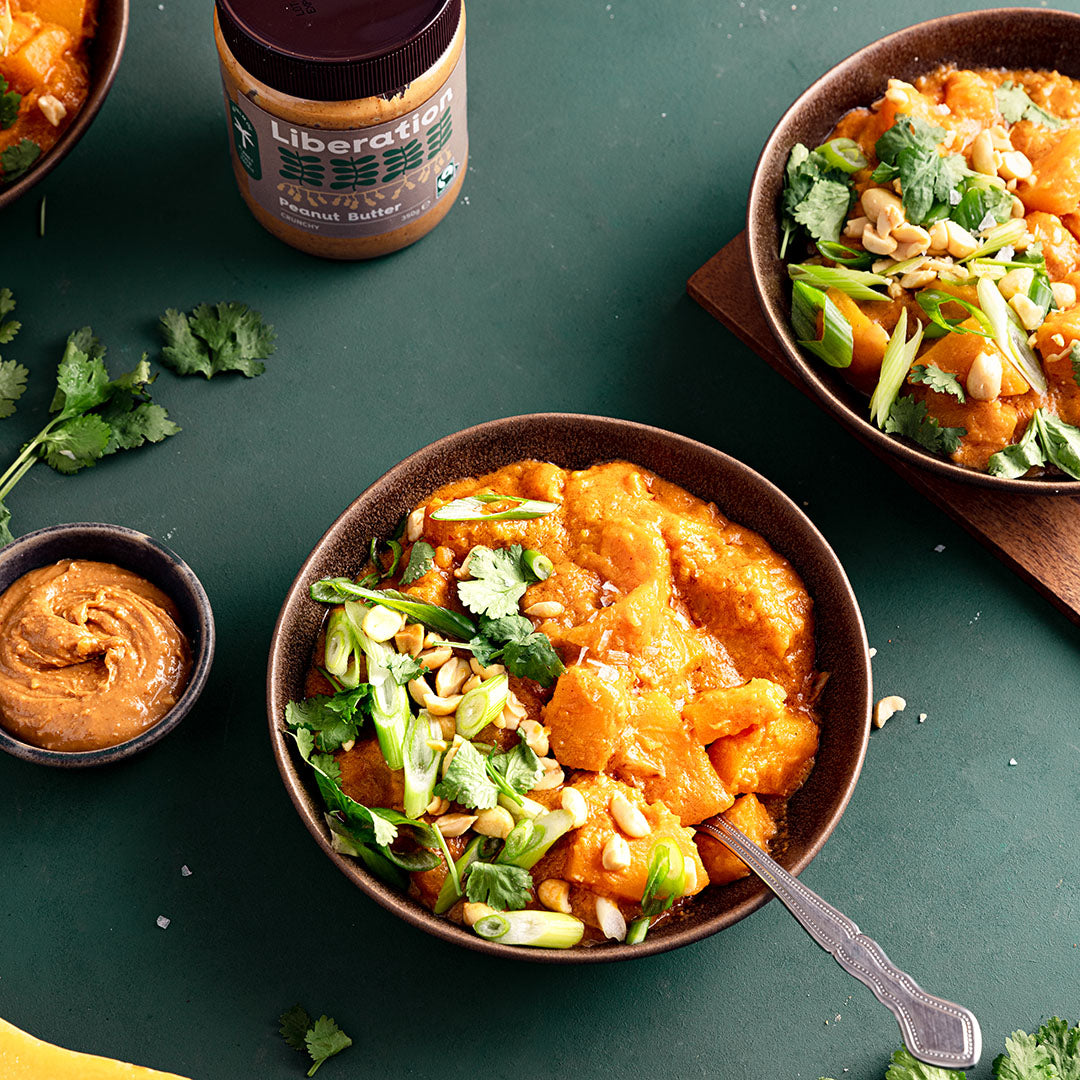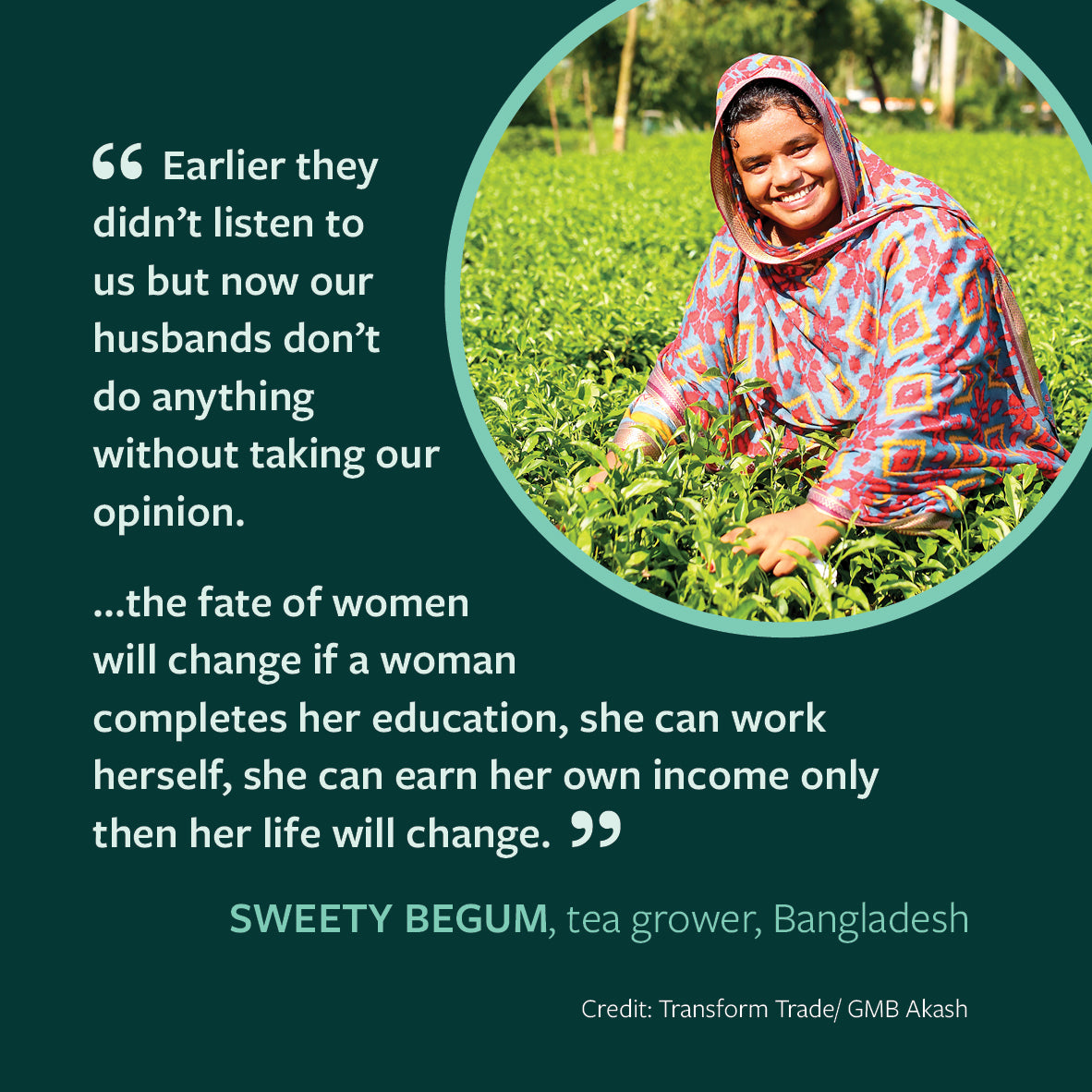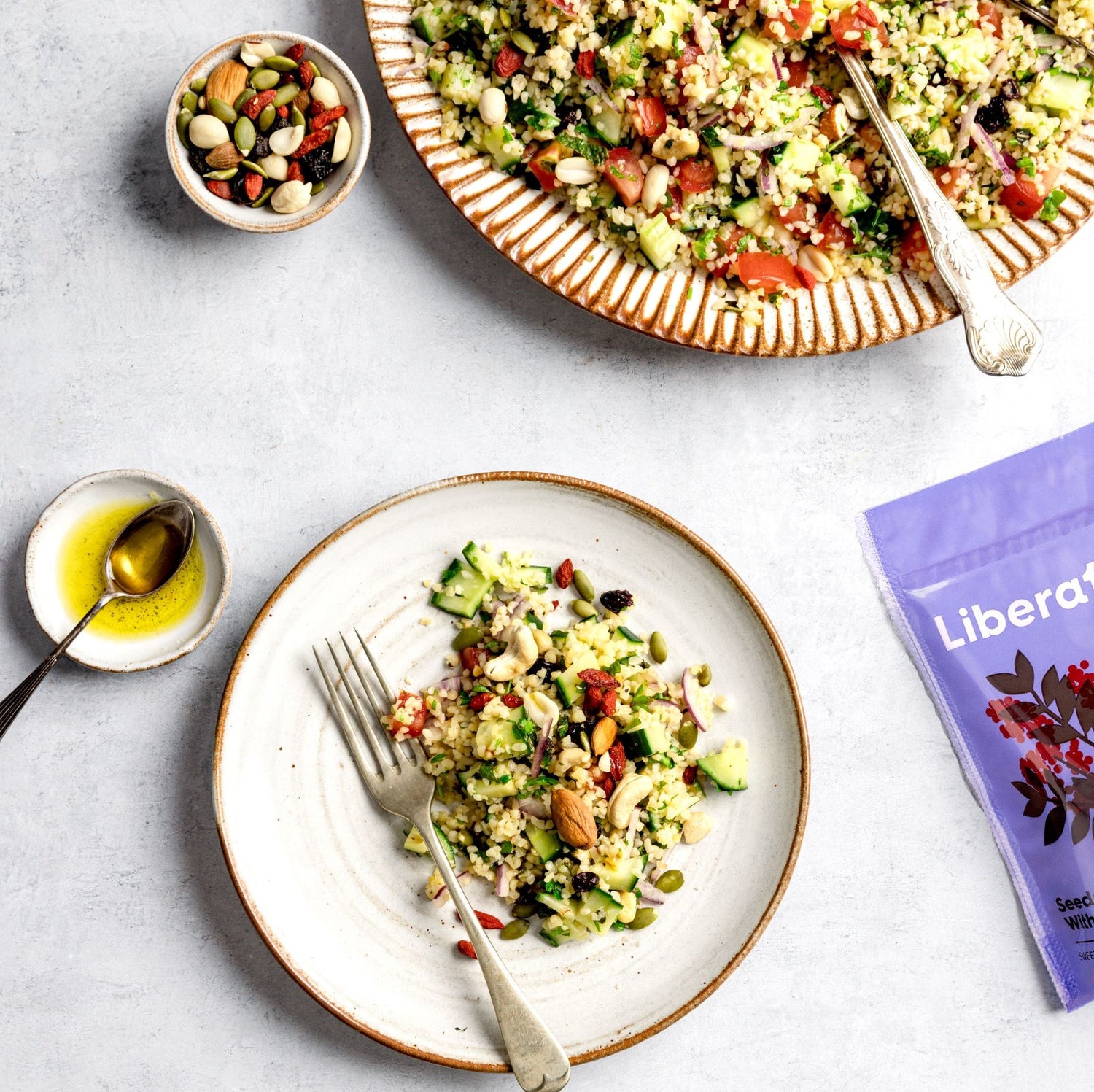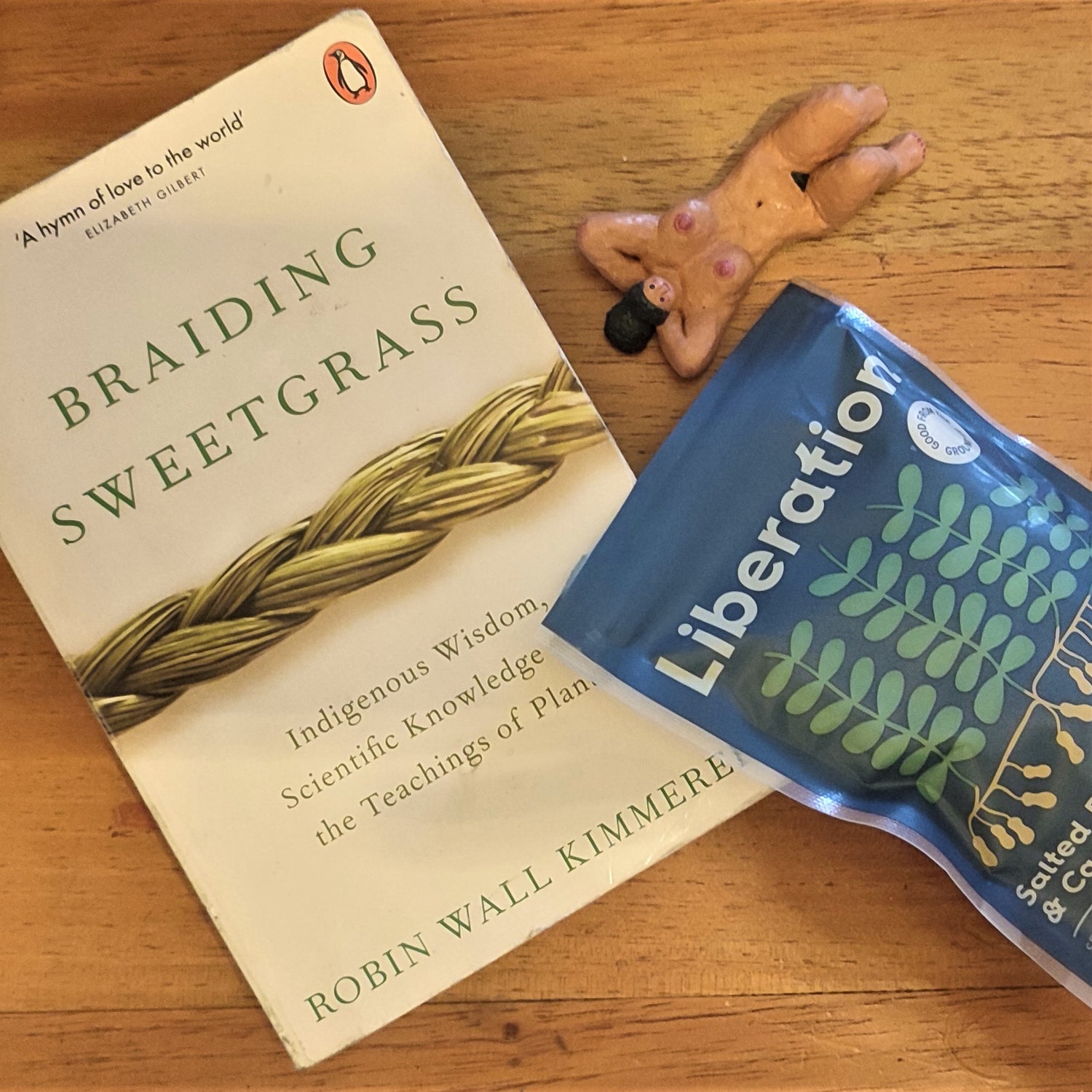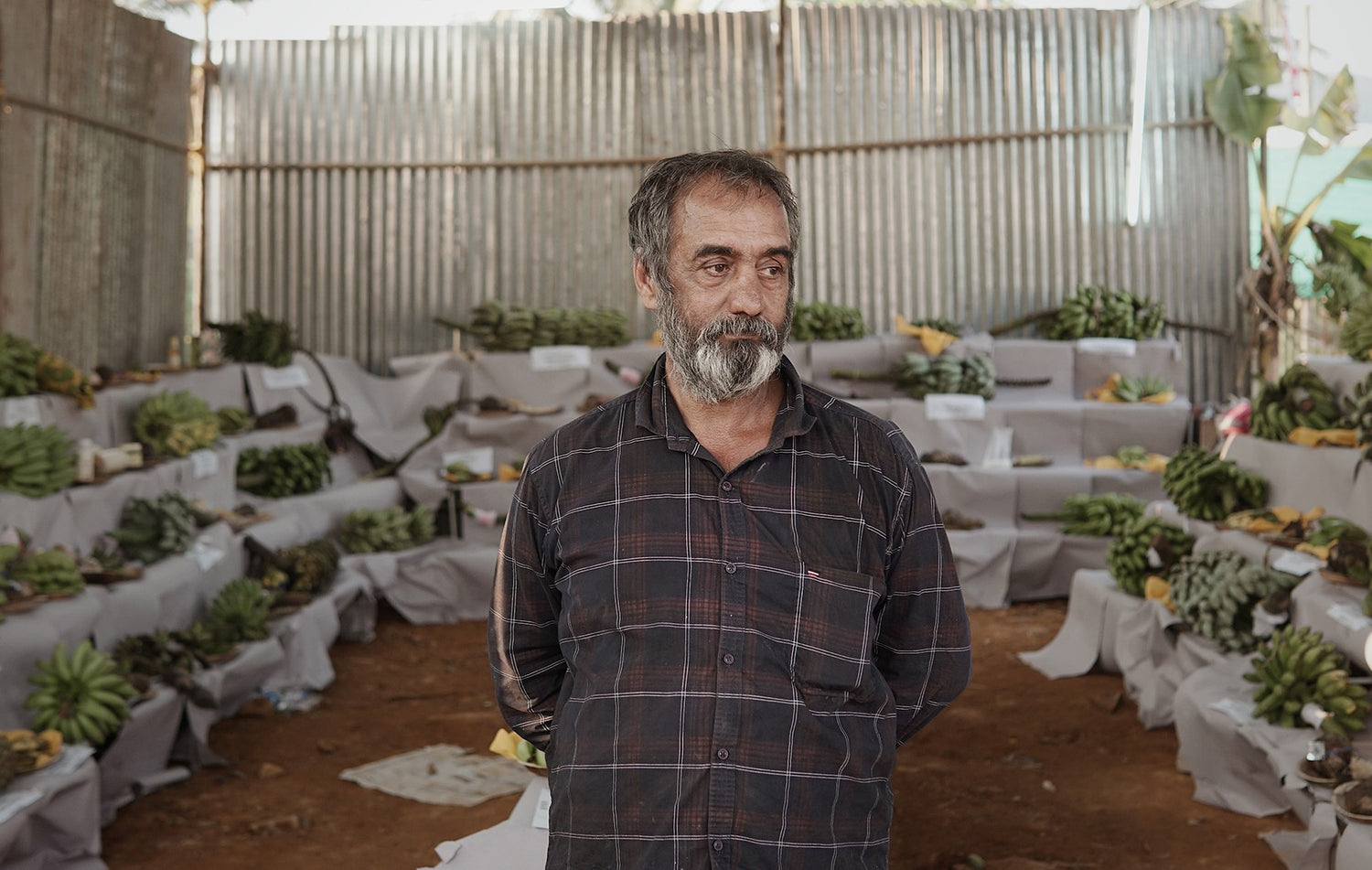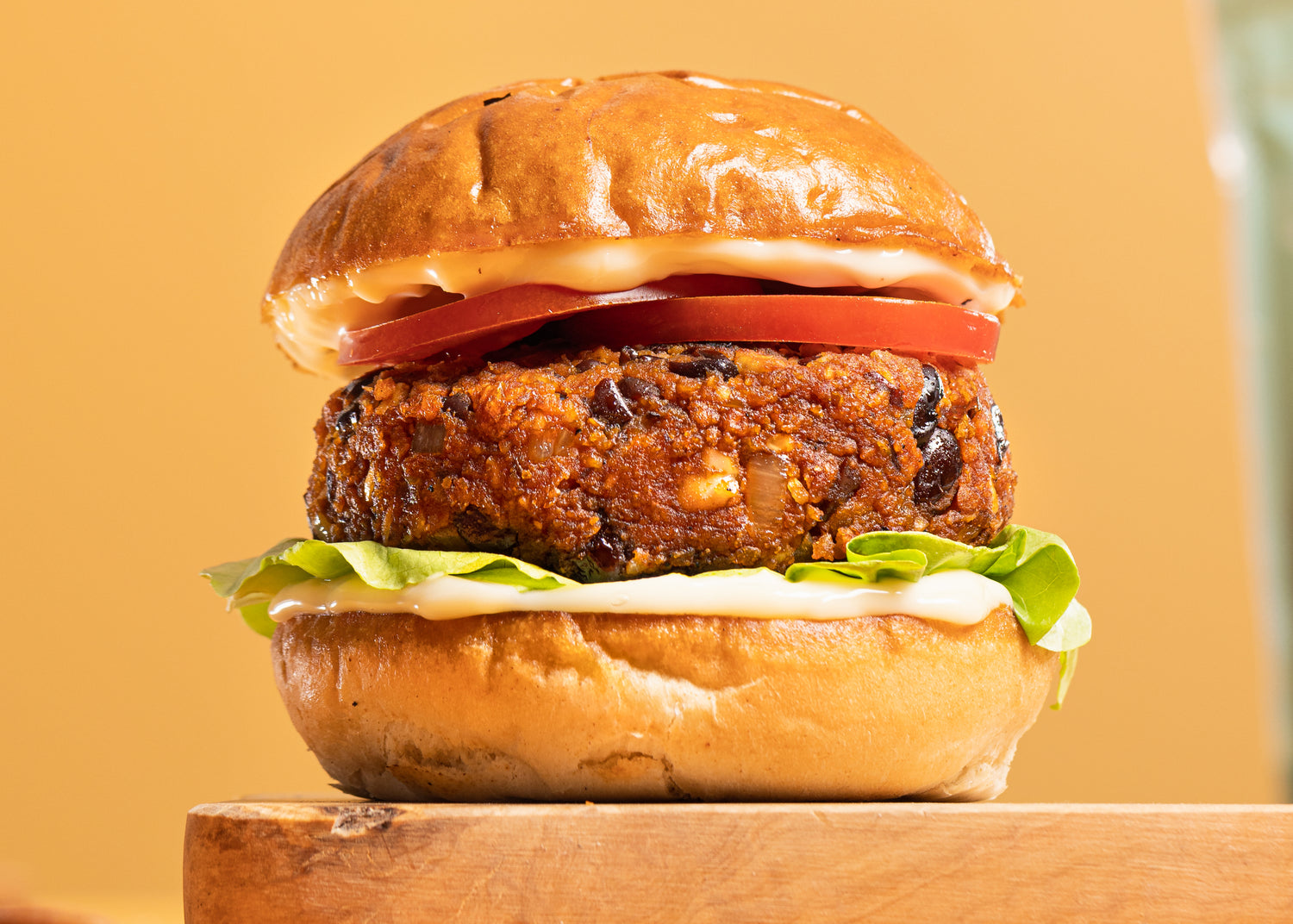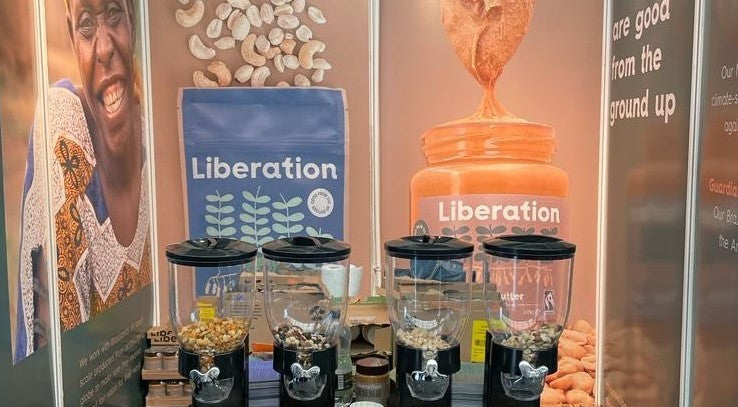Fairtrade Alliance Kerala (FTAK) was formed in 2006 and currently has a network of close to 4,000 smallholder farmers in the region. The network actively promotes organic farming methods, climate resilience, gender equality and the legal and economic rights of smallholder farmers on a national level.
For the people of India, 2021 has included the slow recovery from a devastating wave of Covid, severe flooding and landslides due to unprecedented levels of rainfall in Kerala and a victorious win for smallholder farmers against the Indian government and international corporate giants.
FTAK have had a consistent and vital presence in supporting their members and wider communities in tackling these, and many more, issues as and when they arise, through economic, educational and social initiatives.
They also have been working with Liberation from the outset, are a member of the International Nut Cooperative (our majority shareholders) and are our main supplier of cashews.
Knowing the individuals behind the coop, the roles they play and the work that goes into managing cooperatives is important for us.
Introducing Thomas Saviour Kalappurackal, General Secretary of FTAK since 2017.
What is your role and what does it entail?
As the General Secretary of Fair Trade Alliance Kerala, I am responsible for consolidating and reporting the will and deliberations of the FTAK board. I am the custodian of the records.
I prepare and present reporting on the activities of the organisation for the members and for statutory authorities. I assist the Chairperson in various committees and consolidate and monitor the progress of the various programs and schemes the organisation initiates. It is a very busy job!
Can you tell us about your cooperative and how it functions?
We are a collective of 4500 farmers engaged in environmentally sensitive farming operations and fair trading practices in the Malabar Hill tracts of Kerala. We were formed at the peak of the agrarian crisis in Kerala in the first decade of 2000 and committed ourselves to securing fair market access for our farm produce. We have been very active in uniting farmers voices during the protests over the last months, doing it remotely due to Covid restrictions and risks.
We are constituted as a bottom up collective that begins with a Neighbourhood or Self Help Group, village committee, district committee and a central committee that has an executive board.
We commit to the justice tuned global marketplace for cashew, coffee, tropical spices, coconut products and cocoa. By fair trading these farm produce, we would like to engender bio diverse and multi crop farms, ensure food security for our farming families and communities and strive towards greater gender equity in the management of our homestead farms and the organisation of FTAK.
Tell us a little bit about the relationship between FTAK and Liberation.
Fair Trade Alliance Kerala is a founder member of the INC and its principal supplier of an important product in its portfolio, cashew. We hosted the first and so far only global assembly of INC/ Liberation in my native village in Kelakam and I was the general convenor of the Global Assembly. It is a matter of pride for me that every single member of FTAK contributed to the conduct of the Assembly and we hosted about 60 international delegates in our village for a week and every expense for that event was met entirely from contributions from FTAK members, save their flight tickets.
Our promoter, Tomy Mathew Vadakkancheril served as the founding Chair of the INC and was a board member of Liberation from its inception until 2011. I was among the first set of Farmer representatives that met in Turin, Italy in 2006, where the idea of the Ethical Nut Company, that later christened itself as Liberation, was communicated.
Fair Trade Alliance Kerala continues to look up to our farmer owned business, Liberation, as the most important and critical end point of the market for our cashews. The fortunes of about 3000 members of our organisation who are cashew farmers are inexorably tied to Liberation being a successful business.
What are your hopes and plans for the future of the co-operative?
We hope we can consolidate and expand our focus on the critical themes of biodiversity, food security and gender justice to ensure that environmentally sensitive farming practices in a world heritage site like the western ghats and a bio diversity hotspot like the Nilgiri Biosphere is fit to purpose in a climate challenged world.
